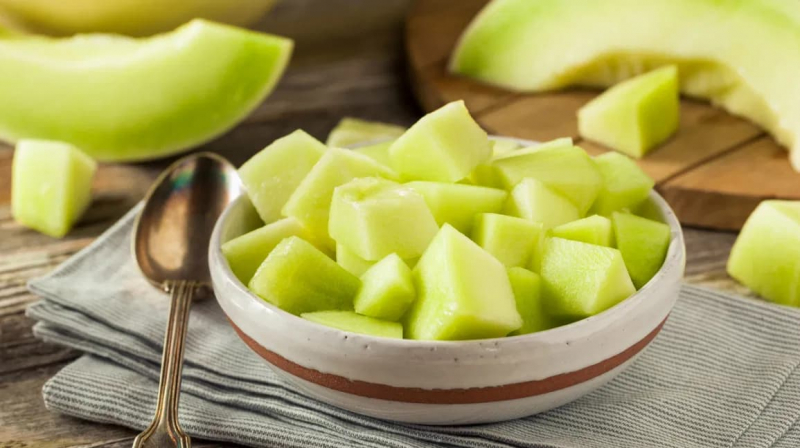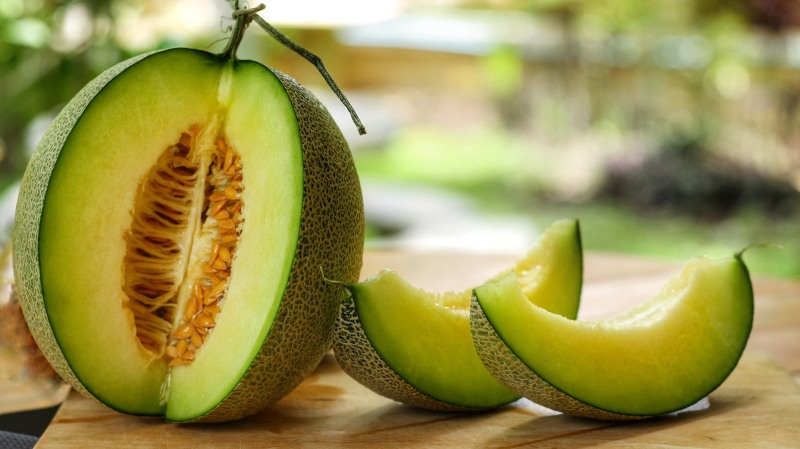Honeydew Melon
Honeydew melons, botanically classified as Cucumis melon var. inodorus, are a sweet muskmelon variety belonging to the Cucurbitaceae family. The melon types are also referred to as winter melons, a term used to highlight melon varieties with rigid, thick skin that can be stored for a longer period of time without losing flavor. Just behind watermelon and cantaloupe, honeydew melons are the third most widely grown melon in the world. The melons' mild, sweet, and mildly earthy flavor makes it ideal for fresh, savory, and sweet dishes. The juicy, succulent texture of honeydew melons, which are usually served as a dessert variety, makes them popular.
Averaging 15 to 22 cm in diameter and 4 to 8 pounds in weight, honeydew melons are small to medium-sized fruits with a round to oval form and blunt, curving ends. The smooth, solid, and semi-thick rind of the melon change from green to white, yellow, or pale orange as it ripens. Additionally, as the flesh acquires a high sugar content, the rind takes on a waxy, velvety appearance and a little sticky quality. Depending on the variety, the flesh is thick, dense, and watery underneath and has a hard and crisp, succulent quality.












